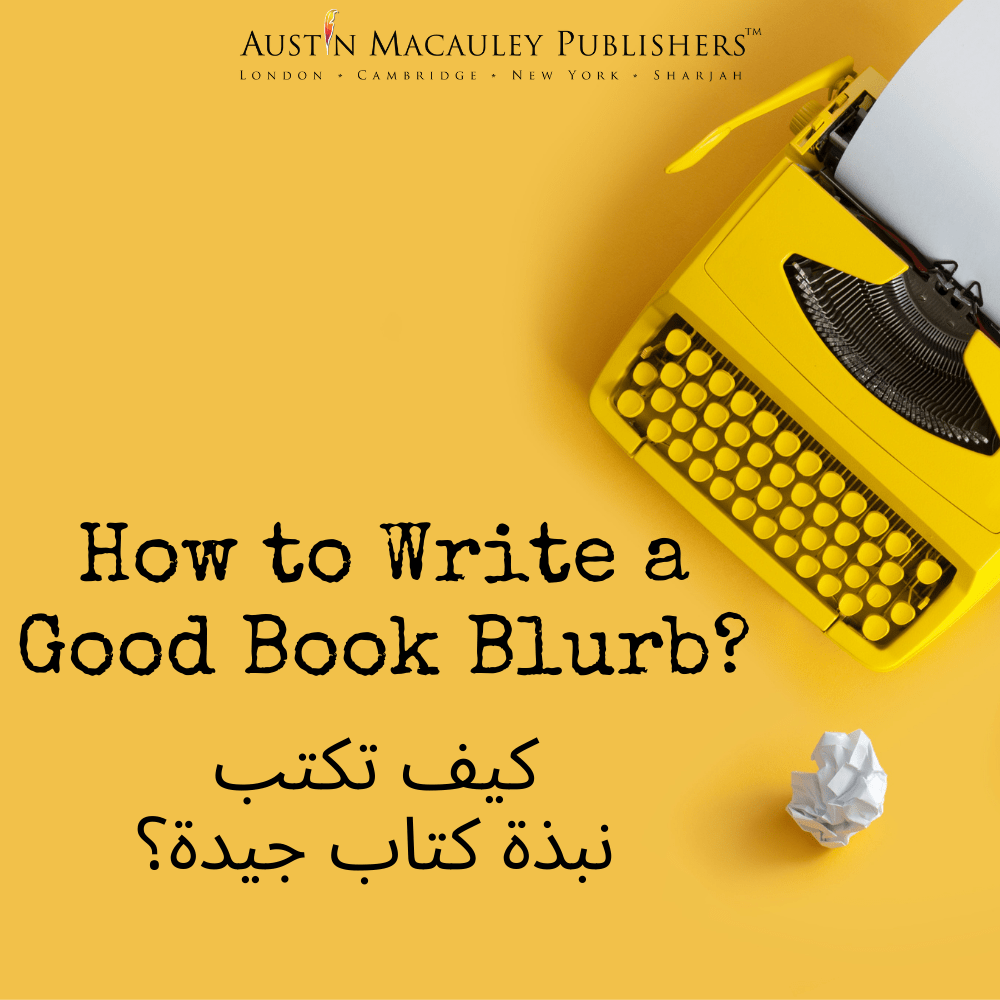Ever wondered why some of the books do not get the recognition they deserve despite all of the scholarly work inside them? You’ve guessed it right, “The Book Blurb”.
It is true when they say, “First Impression is the Last Impression.” While you have to maintain a good first impression in every aspect, the book blurb is no different. It is the lynchpin for the success of your book – a make and break point that cannot and should not be taken for granted. If you are successful in writing an enthralling blurb, chances are high that your book captivates the readers scrolling through the aisles for a perfect read.
Since the book blurb plays an instrumental role in defining the success of your book, let’s have a glance at what it is.
What Is a Book Blurb?
The blurb is regarded as a preamble of a book. It is a brief yet informative account of the book that appears on the back cover (traditionally, it used to be inside). In today’s publishing market, when more books are purchased online than in brick-and-mortar stores, you’re more likely to come across blurbs on any digital retailer’s product page. Any information that best describes the book and intrigues the audience should be included in it. The main goal of the book blurb is to draw readers in and entice them to buy the book. And guess what? You have only 100-250 words to impress the audience.
Blurbs are an important aspect of book marketing since they are meant to encourage consumers to purchase the book. A blurb is successful if it makes the reader want to read more; if it bores or overwhelms the reader, it needs to be changed.
Constituents of a Good Blurb
The recipe calls for an ingredient, so does a good blurb need its components. Following are some of the vital integrants that make a well-written blurb.
Understandable:
A book goes on a journey around the globe. You never know who will pick up your book in which corner of the world. Keeping in mind the wide range of readers who would be interested in your book, it is usually better to make your blurb as simple as possible. Intricate language, jargon, and specialised terminology – all are going to add complexity to the blurb. This will restrict the readership of your book. The blurb should be written in layman’s dialect unless your book is aimed at a specific audience.
Concise:
When your blurb is too long it gets boring. Not every reader has a significant amount of time or patience to read all of the lengthy stuff. That is why it is highly recommended to keep it as precise as possible. This would save much time for the readers and altogether would make your blurb enticing.
Well-Researched:
Before you sit back and start writing a blurb for your upcoming book, you need to do a thorough analysis of already written blurbs. This should help you figure out what work fits best for your book, as well as offer you an idea of what other authors are writing and what readers are expecting. Moreover, you will be able to have a fair idea about the most preferred style for the book blurb in your genre.
Stir Emotions:
Your blurb will be able to stand out if you are writing for a targeted audience. It should appeal to the emotions of a certain category of readers you’re writing for. Case in point; if you’re a sports coach who wants to make it big by offering valuable insights and knowledge in the form of a book to people who can’t come to the ground, you can do so. You must ascertain that the blurb relays the book highlights that the niche actually desires. Is it, for example, stamina-boosting advice? Is it a question of endurance? Agility? Mention how your book will assist them in achieving their objectives, whatever it is.
Start With Hook Statement:
The readers will be drawn to the book by the hook statement. They won’t read the remainder of the blurb if your opening sentence is uninteresting, and they won’t buy the book either. Always begin with a dramatic statement or one that establishes your authority. You should choose your book description phrases carefully to lure them into reading the rest of the blurb.
Define Characters and Conflict:
Cognizant of the fact or not, readers scan the synopsis to see if they want to spend time with your core characters. A good blurb should also offer readers a sense of who the protagonist is. Because your readers will be spending several hundred pages with the central character, they need some kind of reassurance that they will enjoy reading about his or her life.
Similarly, the major plot in your book is what propels it forward. If everything goes flawlessly for your main character, readers will become bored quickly. The conflict in your work (what comes in the way of your main character’s aims) is what keeps readers reading because they want to know how the conflict is resolved. Undoubtedly, the purpose is to pique the interest of potential readers and make it impossible for them to put the book down after reading the blurb.
A Good Conclusion:
When it comes to a blurb, a good conclusion is the icing on the cake. The conclusion leaves the last and most recent impression to the one who is reading the blurb, so make sure it is well written. A well-written conclusion will add more to the intrigue of the readers and it will eventually compel them to read the book.
All of the abovementioned elements are an integral part of a good book blurb.
Mistakes to Circumvent
Underneath are some of the common mistakes that you need to avoid while writing a book blurb.
Opening With Overused Phrases or Words:
Most of the people start with banal words or phrases that diminish the impact of their blurb. As we have previously discussed the significance of the hook statement, you need to avoid such trite utterances.
Writing the Summary of the Book:
This is the most repeated mistake, especially by the authors in their nascent stages. They give away too much in the blurb and leave little to no room for imagination. Writing a summary and a blurb are two different things and they need to be distinguished. It should only provide enough information to arouse readers’ interest and end on a painful nail-bitter that will compel them to purchase the book.
Giving Away Everything:
Beware of adding any sort of spoilers in your blurb. If you fail to establish the stakes, and conflict resolution is disclosed, readers might lose interest. If the suspense is gone, no one would bother to read the book.
Self-Complacency:
It is true when they say self-praise is no recommendation! Boasting about your work and ranking yourself up among others is a false practice. You need to realise that you are not the judge, readers are. Never praise your work as it delivers a bad impression.
Improper Use of Keywords:
The author should capitalise on the potential keyword searches. Most of the time, people tend to ignore this crucial ingredient. That is why their work could not stand among the others’ and make up to the top. Each genre has a certain set of keywords. Making proper use of them will get your work to appear higher up in the online bookstores’ searches.
Never Write in Third Person:
Many a time, authors tend to write the blurbs in the first person. Often travel memoirs’ or success stories’ blurbs are conflated to be written in the first person, however, this is a false practice. The rule of thumb is that all of these should be written in the first person.
As indicated earlier, a book blurb is a cornerstone for the success of any book. By paying heed to all of the aforementioned Dos and Don’ts, your blurb will prosper. Also, you will find an escalation in the reading audience, as well as your book, will rank among the best-selling.
If you are an aspiring writer, you can submit your manuscript to us for review. You can also make a quick and easy submission through the online submission form.
Did you find this blog interesting? Are you looking forward to having some more useful writing tips? Follow us on Facebook, Twitter, and Instagram to keep yourself informed about every important aspect of writing.
Let us know if you have any other tips for aspiring writers. We would love to hear from you.
If you want to know more about how to become an author with us, then click here to get all the details.




